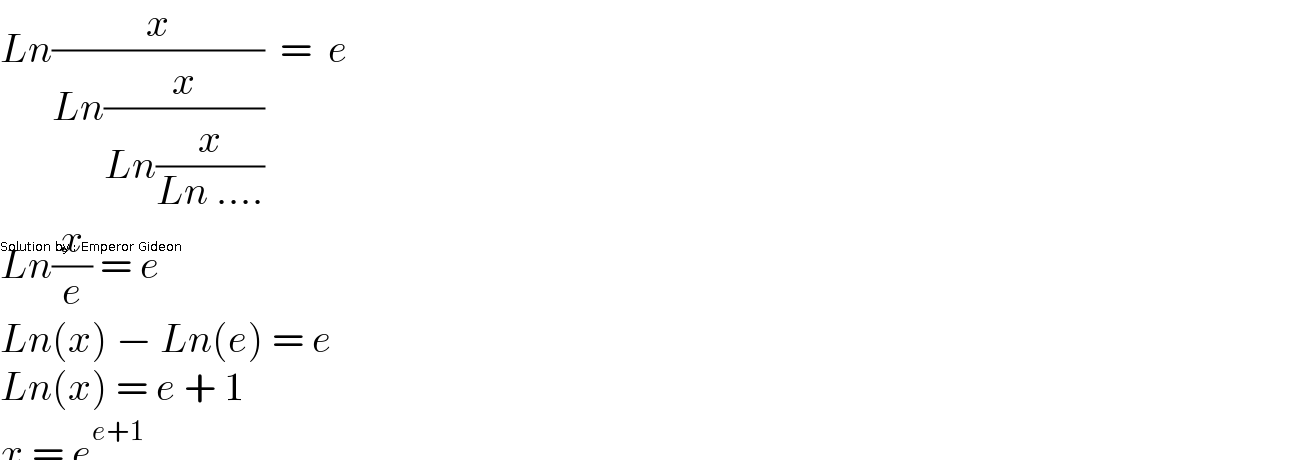
Question and Answers Forum
Question Number 160821 by mathlove last updated on 07/Dec/21

Commented by Mathematification last updated on 07/Dec/21

Answered by Raxreedoroid last updated on 07/Dec/21

| ||
Question and Answers Forum | ||
Question Number 160821 by mathlove last updated on 07/Dec/21 | ||
 | ||
Commented by Mathematification last updated on 07/Dec/21 | ||
 | ||
Answered by Raxreedoroid last updated on 07/Dec/21 | ||
 | ||
| ||